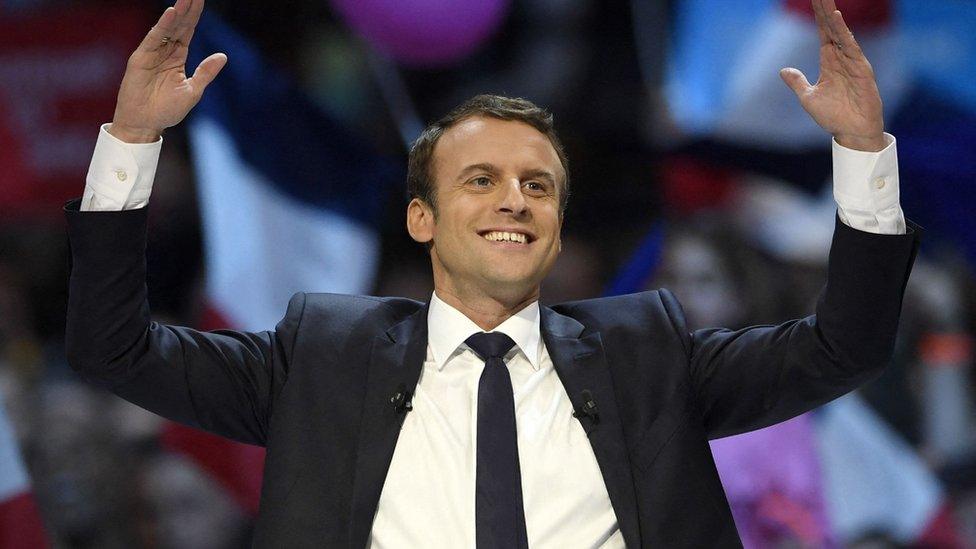Eurovision: Who will win - and other questions answered
- Published
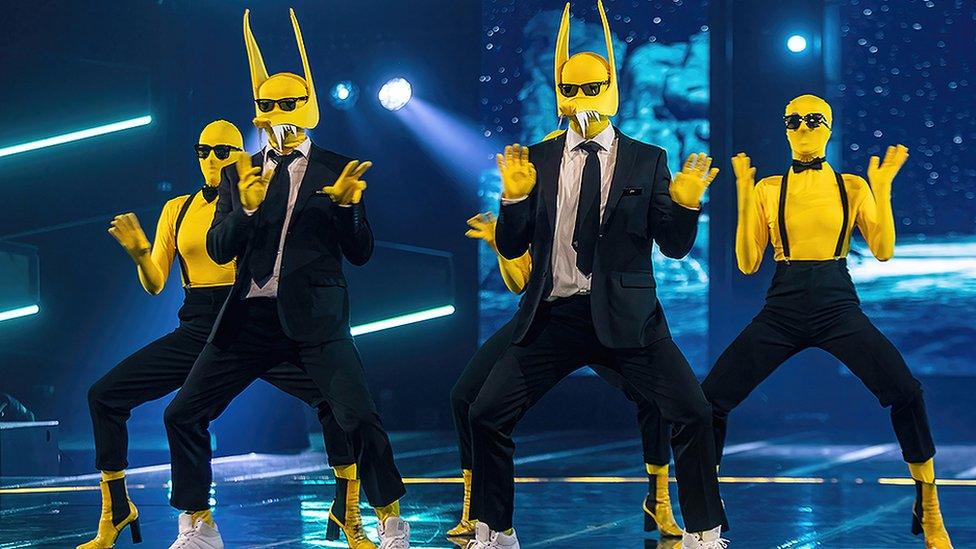
Norway's Subwoolfer have made an impact with fans but nobody knows who are behind the masks
The world's largest music competition is taking place this week in Turin, Italy.
Nearly 200 million viewers are expected to watch the Eurovision Song Contest being held in the country after Måneskin won last year's competition.
There are 40 countries taking part with hopes of taking home the trophy and an invite to host the event in 2023.
Each song must be no longer than three minutes, and can have a maximum of six people involved in the performance.
Who will win Eurovision?
The bookies have Ukraine's Kalush Orchestra as odds-on favourites to win the contest with their song Stefania.
But that assumes the entry receives high public and jury votes across participating countries - and those results can be completely different.
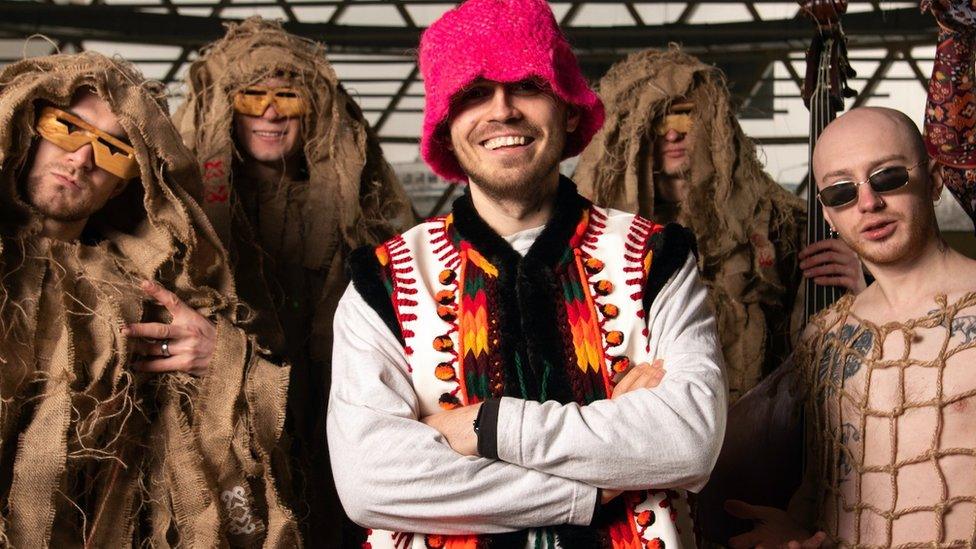
Ukraine last won in 2016 but Kalush Orchestra are hoping for another win - pointing out they were the fifth favourites to win before the invasion
Other favourites to win are Sweden's Cornelia Jakobs, the United Kingdom's Sam Ryder, as well as host Italy's Mahmood and Blanco.
Ireland is the country that's won the contest the most - with seven wins - and is sending former The Voice contestant Brooke Scullion this year.
Who decides who wins?
There are two sets of results from each country: one from a national jury and the other from a public vote.
Each participating country selects five music professionals to rank all the songs which are performed - with points being distributed to the top 10 acts.
Those are the results viewers see given out during the final from announcers standing in front of green-screens showing landmarks like the Eiffel Tower or Tower Bridge.
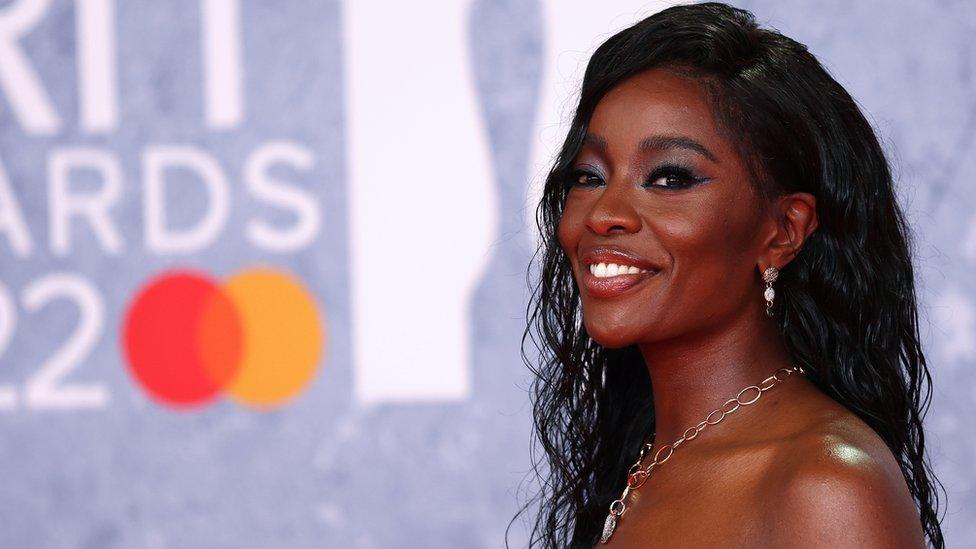
Strictly star AJ Odudu will deliver the points for the United Kingdom at this year's final on Saturday 14 May
Then there's the televote where viewers at home vote for their favourite act on the night - although you can't vote for your own country.
Like the jury vote, points are given from each country to the acts the audience selects as the 10 best performances.
Why does the UK always do badly?
The United Kingdom received no points from either the jury or the public in last year's song contest final.
It also came last in 2019 and hasn't been in the top 10 since 2009. It hasn't even been in the top half of the leader board - an aim for most of the countries competing - since 2011.
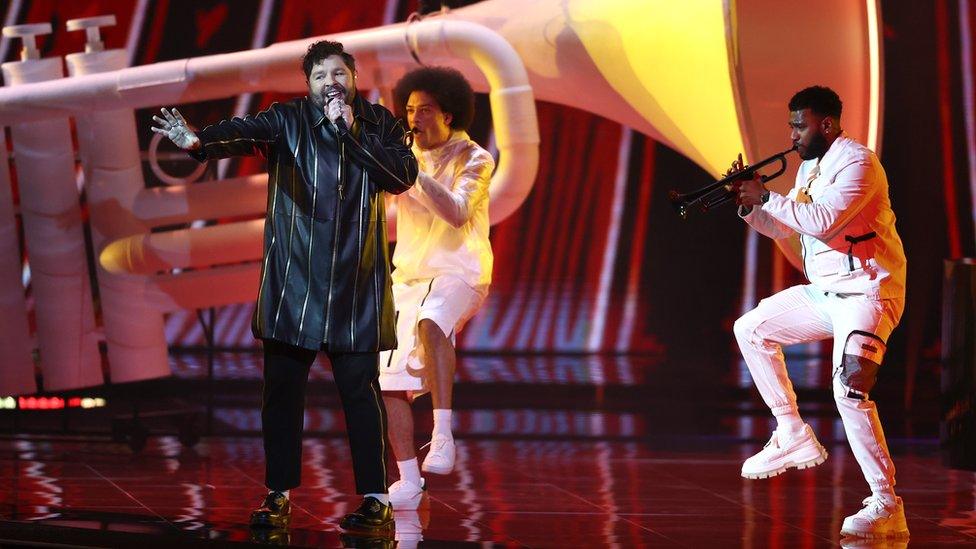
James Newman performed his song Embers at last year's contest in Rotterdam, describing the experience as "life-changing"
Some viewers claim this is due to politics, as some European countries could be angry about things like Brexit - but Eurovision organisers point out the judges sign a document agreeing to vote independently.
The closest James Newman got to receiving jury points in 2021 was from Poland and the Czech Republic, which ranked his performance 11th and 13th out of 26.
With the public vote, however, his song Embers consistently ranked in the bottom five entries, apart from Malta where it was the 14th most popular song.
Who pays for Eurovision?
Each participating country enters as a broadcaster - for example BBC, RTÉ and RAI, for the UK, Ireland and Italy.
All 40 broadcasters are charged a fee to take part, with some paying more than others.
The "big five" contributors are Italy, France, Spain, Germany and the UK.
These countries automatically get a place in the grand final and don't have to compete in the semi-finals.
When are the semi-finals?
There are two semi-finals on Tuesday 10 and Thursday 12 May, during which 35 countries will compete for a place in the grand final.
They will be broadcast on BBC Three with commentary from Radio 1's Scott Mills and Radio 2's Rylan.
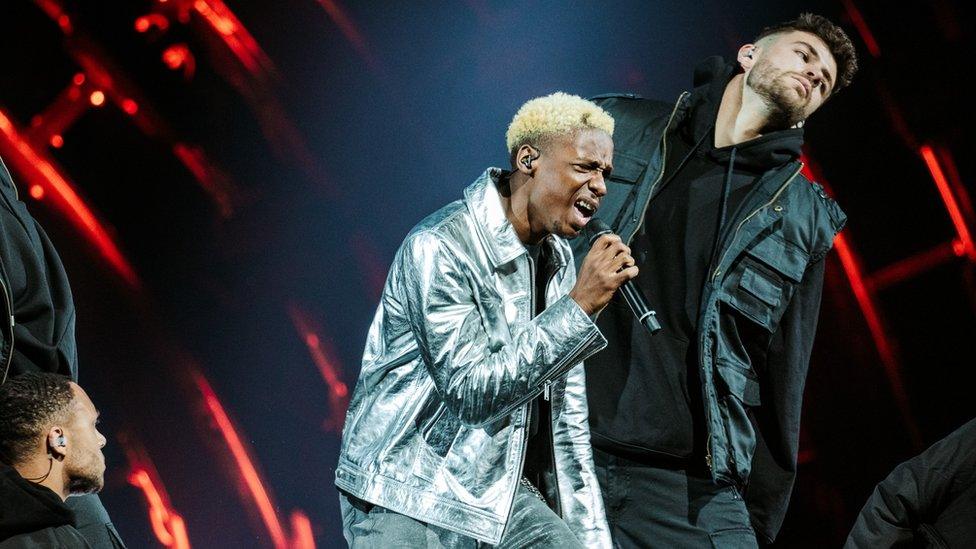
As well as performing at Eurovision, Belgium's Jérémie Makiese has signed to be goalkeeper for Excelsior Virton FC
Countries like Belgium, Austria and Australia will take part in these.
The top 10 acts from each semi-final will get a place in the grand final on Saturday 14 May.
Why does Australia take part in Eurovision?
Eurovision has been big in Australia since the 1980s, and in 2015 the country was invited to perform as part of celebrations to mark the 60th song contest.
Its participation was very popular with fans, and the country was given permission to keep competing until next year - as things stand.
Australia's Sheldon Riley explains how his song is about his experience of being autistic
There are other countries not in Europe - like Armenia and Israel - who also participate in Eurovision, but they are members of the European Broadcasting Union (EBU) which organises the song contest.

Watch the first Eurovision Semi-Final on BBC iPlayer.
Watch the second Eurovision Semi-Final on BBC iPlayer.
Watch the Eurovision Song Contest Final on BBC iPlayer and BBC One, at 20:00 BST on Saturday 14 May.



Follow Newsbeat on Instagram, external, Facebook, external, Twitter, external and YouTube, external.
Listen to Newsbeat live at 12:45 and 17:45 weekdays - or listen back here.
Related topics
- Published9 May 2022
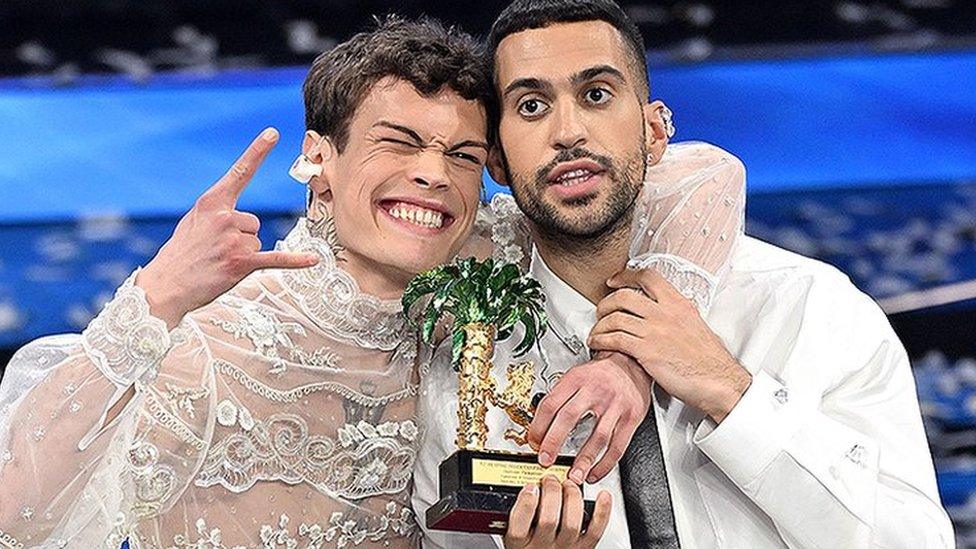
- Published10 May 2022
